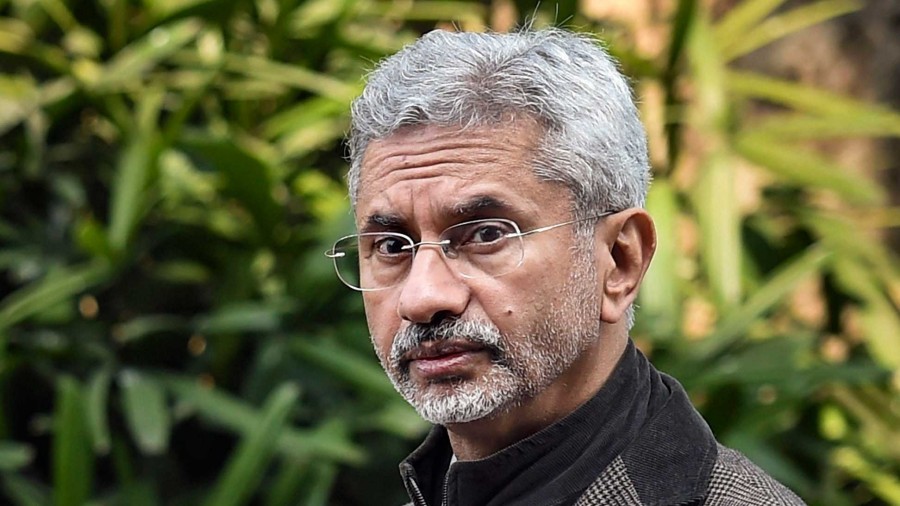External Affairs Minister S Jaishankar suggested on Thursday that going forward some kind of understanding would have to be developed among nations on Covid-19 vaccination certificates rather than on particular vaccines for foreign travel, but acknowledged it would be a challenge as some countries will push the viewpoint that their vaccines are a must.
He also expressed hope that an indication about the World Health Organisation's approval to Bharat Biotech's Covaxin is likely by September.
In his remarks made virtually at a plenary session of the Confederation of Indian Industry (CII) Annual Meeting, Jaishankar asserted that the world stood by India during the second wave of Covid, especially in terms of oxygen supply, oxygenators and medicines as the country had helped others in the first wave of the pandemic.
Asserting that India had "come through a test of fire" and the world had understood and appreciated its resolve in combating the pandemic, he also hailed India for helping out other smaller countries in vaccine supply, saying many of them would not have come within "sniffing distance" of vaccines if not for India. "I think, we have reputationally come out of this much stronger," Jaishankar added.
Asked about the need for global vaccine passports and problems being faced by Indians in foreign travel, he said a lot of this travel impediment is speculation and not fact based.
"The US does not insist on your being vaccinated to enter the US, it insists on you being RT-PCR negative before you board a plane. At the moment there is an India issue because they are not allowing people who have been in India for a certain period immediately to go to the US directly," Jaishankar pointed out.
"I would say, still the general practice (for foreign travel) right now is very much testing-based rather than vaccination-based," he said.
Jaishankar pointed out that the problem arose when Europe started issuing a notification that those with certain kinds of vaccinations would be exempt from quarantine.
"We took up that issue bilaterally with a whole lot of European countries and made sure that initially Covishield which was excluded is included," he said.
Noting that travel to Europe for those who have taken Covaxin was still a problem, he expressed optimism that this was likely to change once the WHO gives its approval to it.
"Typically, the WHO takes two months plus to look at this and Covaxin filed its application on July 9, so I am hopeful that some time, maybe in September, we should get some kind of an indication (on approval for Covaxin)," Jaishankar said.
He argued that the regulator has recognised only a limited set of vaccines so if countries only receive those who have been administered those jabs, very few foreigners will be able to enter any country.
"So, the answer to my mind will have to be some kind of understanding on vaccination certificates, not on vaccines. There is a precedent for it in yellow fever, there were yellow fever certifications and nobody said you have to have injection 'x' or 'y'," he said.
Jaishankar noted that these conversations are beginning to get traction and that the International Civil Aviation Organization has been having such discussions.
The minister, however, added that he does see the issue as a challenge because some countries "will try to get across a viewpoint that their vaccines are a must".
There will be a "push and pull" out here, he said and asserted that India as a country whose people look at the world as a global workplace where mobility and migration matter so much, it would be a priority as to how Indians are able to travel with least restrictions.
Talking about the help provided by India to other countries during the pandemic, Jaishankar said he has received messages of gratitude from representatives of many nations for having sent out medicines, medical teams and food supplies when it was needed the most.
He said that when the Covid pandemic broke out for the first time, India stood out for being decisive and largely effective in what it did, considering that Covid "caught us when our health infrastructure was very rudimentary, especially in terms of what we needed to do (to combat the situation)".
"When the second wave of the pandemic hit us, it was a very different situation. The scale, intensity, seriousness of it was something which was very difficult to anticipate," he said and added that because of the delta variant of the coronavirus, it had some very specific implications in terms of oxygen demand which went up eight-nine times.
The minister said that initially, the world looked at India and wondered how any country could deal with this kind of caseload and severity of pandemic.
"Where we are today, I think the world understands and appreciates that we have pulled up our socks, gritted our teeth, shown national resolve, we have come through a test of fire," Jaishankar said.
"The overall sense of the world is 'ok guys you have had a very rough time, but we've seen you have got a government which has pulled you through, you have a national resolve, you have reserves of strength, you have dug deep and come through it'," he said.










